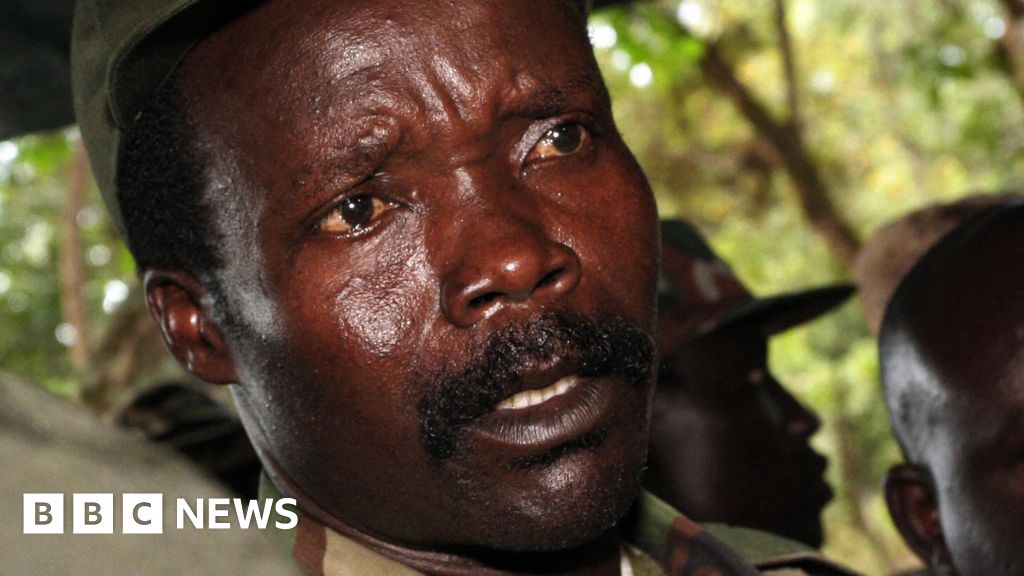Ugandans welcome war crimes charges against LRA leader Joseph Kony and demand his arrest

```html ICC Confirms War Crimes Charges Against LRA Leader Joseph Kony, Ugandan Victims Demand Justice
The International Criminal Court (ICC) has confirmed war crimes and crimes against humanity charges against Joseph Kony, leader of the Lord's Resistance Army (LRA), a rebel group notorious for its brutal violence in Uganda and neighbouring countries. The announcement has been met with cautious optimism by survivors of the LRA's reign of terror, who are demanding his arrest and prosecution.
Kony, who remains at large despite an ICC arrest warrant issued in 2005, faces 39 counts of war crimes and crimes against humanity, including murder, rape, using child soldiers, sexual slavery, and forced pregnancy. He is believed to be hiding in the Central African Republic (CAR).
Victims Voice Hope for Justice and Compensation
Evelyn Amon, abducted by the LRA as a child and forced to become one of Kony's wives, told the BBC she hopes the ICC’s confirmation of charges will renew efforts to capture him. "I cannot be happy like other women who went to school. I need justice for women who went through abduction like me," she said.
Ms. Amon, who spent 11 years in the bush with the LRA after being abducted at age 11, emphasized the need for victims to receive compensation. She believes a trial is crucial for this to happen.
Patrick Ochieng, born in LRA captivity after his mother was abducted and sexually assaulted, echoed this sentiment. "He should first be arrested. The victims who suffered can't wait - some of these victims are already dying," he said. Ochieng's mother was killed by the rebels when he was just five years old after attempting to escape.
The LRA's Brutal Legacy
The LRA, formed in the late 1980s, claimed to be fighting to establish a government in Uganda based on the biblical Ten Commandments. However, the group became infamous for its extreme brutality, including hacking off limbs, mutilating faces, and abducting children to serve as soldiers and sex slaves.
The LRA was eventually forced out of Uganda in 2005, dispersing into neighbouring countries like the Democratic Republic of Congo (DRC), South Sudan, and CAR. Remnants of the group are believed to still be active, engaging in poaching and illegal mining.
Historical Context and Challenges to Justice
Dr. Rosebell Kagumire, a Pan-African feminist and political strategist, commented on the complexities of achieving justice in this case. "The confirmation of charges is a significant step, but the challenge remains Kony's continued evasion of capture. The ICC's reliance on states to enforce arrest warrants highlights the limitations of international justice mechanisms, particularly in regions with weak governance and ongoing conflict," she stated.
Dr. Kagumire also emphasized the importance of addressing the root causes of the conflict. "Beyond individual accountability, sustainable peace requires addressing the socio-economic inequalities and historical grievances that fueled the LRA's emergence. This includes providing comprehensive support to victims and promoting reconciliation within affected communities."
The Pursuit of Kony: A Long and Arduous Road
Kony's notoriety surged in 2012 due to a viral social media campaign raising awareness of the LRA's atrocities. The US government offered a $5 million reward for information leading to his arrest. Despite these efforts and years of manhunts involving US and Ugandan forces, Kony remains a fugitive. The US and Ugandan armies officially ended their operations to track him down in 2017.
The failure to apprehend Kony underscores the logistical and political challenges of pursuing him across porous borders and in conflict zones. The ICC trial cannot begin until Kony is arrested and present in court in The Hague.
Lingering Trauma and the Need for Support
The LRA insurgency left a devastating impact on northern Uganda. Over nearly two decades, more than 100,000 people were killed, between 60,000 and 100,000 children were abducted, and 2.5 million people were displaced, many seeking refuge in internally displaced person (IDP) camps.
Muhammad Olanya, who witnessed the LRA attack on Lukodi IDP camp in 2004, where over 70 people were killed, vividly remembers the terror. "We heard strange sounds like drumbeats followed by whistles - those were bullets," he recounted. Although he escaped abduction, he lost relatives and missed out on formal education due to the conflict.
Expert Analysis: The Importance of Transitional Justice
According to Paul Ronan, Director of The Resolve LRA Crisis Initiative, "The ICC confirmation of charges against Kony is a vital step, but it must be accompanied by comprehensive transitional justice mechanisms at the national and local levels. This includes truth-telling processes, reparations programs, and psychosocial support for victims."
Ronan also stressed the need for continued efforts to protect civilians from LRA remnants and other armed groups in the region. "While the LRA's capacity has been significantly weakened, it remains a threat to vulnerable communities in remote areas. Sustained security sector reform and community-based protection initiatives are essential to prevent future atrocities."
The victims of the LRA's brutality are pinning their hopes on the ICC's decision to press forward with the confirmation of charges, believing it represents a step towards holding Kony accountable for his heinous crimes and providing some measure of justice for the immense suffering he inflicted. ```
Originally sourced from: BBC News Africa
